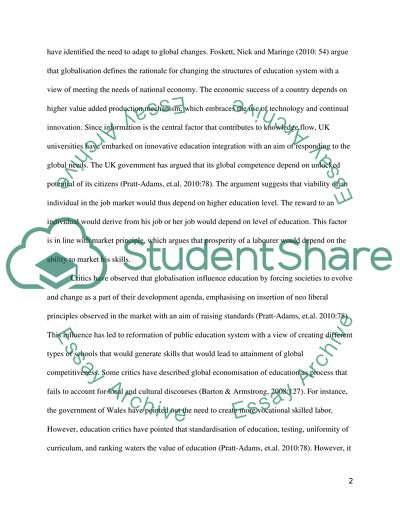Cite this document
(“The Effects of Globalisation on UK Education Essay”, n.d.)
Retrieved from https://studentshare.org/education/1398440-the-effects-of-globalisation-on-uk-education
Retrieved from https://studentshare.org/education/1398440-the-effects-of-globalisation-on-uk-education
(The Effects of Globalisation on UK Education Essay)
https://studentshare.org/education/1398440-the-effects-of-globalisation-on-uk-education.
https://studentshare.org/education/1398440-the-effects-of-globalisation-on-uk-education.
“The Effects of Globalisation on UK Education Essay”, n.d. https://studentshare.org/education/1398440-the-effects-of-globalisation-on-uk-education.


